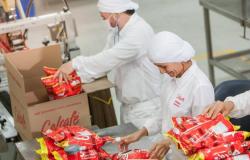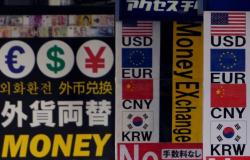- This is a program that seeks to record and reduce Scope 3 emissions from suppliers around the world.
- The program will support partners through transparent data collection, training and specific actions for decarbonization.
- It is an important step for Henkel’s ambition towards achieving net zero emissions.
Henkel has launched its new “Climate Connect” program in order to take the assessment of its CO2 emissions in the supply chain to another level. With this program, Henkel advances its goal of decarbonization throughout the value chain through the collection of emissions data, actions designed in collaboration with suppliers for reduction, and continuous training.
The program records key figures on energy, water consumption and waste volume, and will gradually be extended and adapted to the growing number of suppliers in the different Scope 3 categories in the future. Partners can export data relevant to the Carbon Disclosure Project (CDP), a global environmental data management system, to which many companies have signed up. Data summary can also be used to access business partners and green financing opportunities.
Henkel will cooperate with Manufacturing 2030, a partner in the field of carbon reduction to address its suppliers of raw materials and packaging, and contract manufacturers and suppliers of goods traded around the world, where a total of more than 90% of emissions occur Henkel Scope 3 ascenders. With the help of the generated data as well as the corresponding training, Henkel and Manufacturing 2030, will offer participating suppliers individual support to assess their starting point and establish measures to advance their climate actions. In addition, the program offers suppliers to regularly monitor their progress in environmental ratios and allows the data generated in “Manufacture 2030” to be visible to other clients as well.
“Compared to large companies, our small and medium-sized partners often find it difficult to register their emissions.is of CO2already who lack the capacity to do so. However, these data are enormously relevant, because it is the only way to define objectives and measures to reduce these emissions. For us at Henkel, this is the basis for reducing our Scope 3 emissions and achieving our climate protection goals.“said Bertrand Conquéret, Purchasing Director at Henkel.
“The Climate Connect program is designed as a long-term partner project with which we want to support our suppliers directly and as individually as possible.“Conquéret continues.
Through the initiative Together for Sustainability (TfS), which Henkel co-founded in 2011 along with other chemical industry partners, the company has been working closely with other members to collect Product Carbon Footprint data from strategic suppliers. With the new “Climate Connect” program, this approach will now be expanded to an even larger supplier base with varying levels of maturity.
Reduction of emissions throughout the value chain
Henkel pursues clear goals to reduce its carbon footprint in line with the Paris Climate Agreement. The company has established targets for Scope 1 and Scope 2 emissions, which include reducing emissions by 67% by 2030 (base year: 2017). Henkel also wants to develop a net zero path for its Scope 3 emissions along the value chain, in line with the “Science Based Targets initiative (SBTi)” standard. This involves emissions caused by raw materials and packaging, which currently account for around a quarter of emissions in Henkel’s value chain. By 2030, Henkel aims to reduce its CO2 emissions from raw materials and packaging by 30%.







